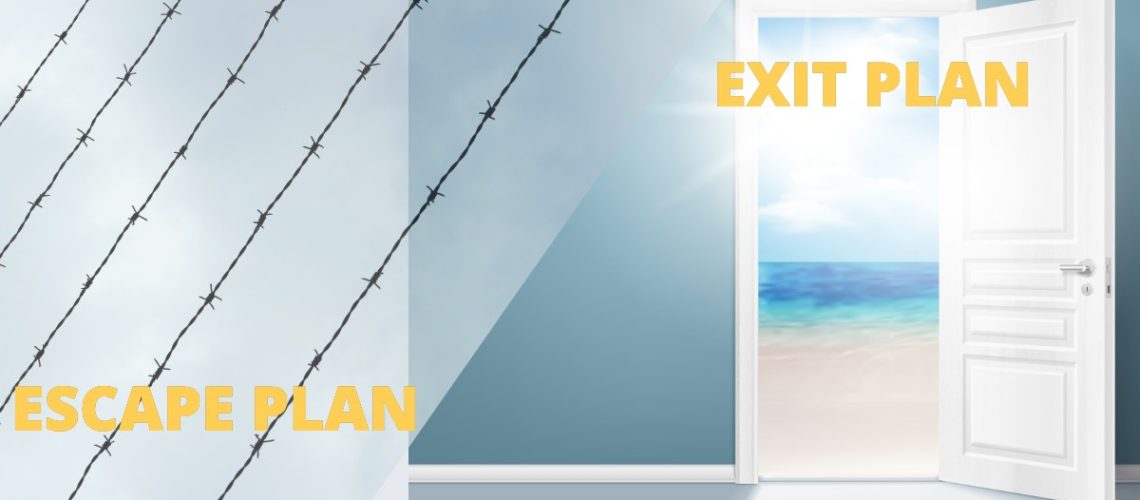When it comes to the way we react to certain situations, there are typically two main types of behaviour that we all fit in to.
A) Move Towards; or,
B) Move Away.
Neither are problematic, and there will be times when we exhibit both types of behaviour. But in the main, we are predominantly one type. Most of us are by default “Move Away” people.
“Move Towards” people are ones that are attracted by the promise or the potential of an opportunity. They will seek out things that excite them and make efforts to get closer to them. These people say things like “wow what a great day, lets head to the beach”.
“Move Away” people are ones that are typically in no real “hunt” for a new opportunity, but if the current scene becomes unpleasant or unproductive, then they look to get away from that by finding something else to do. These people say things like “This weather is giving me cabin fever. I need to go to the beach before I go nuts”.
These behaviours become quite obvious when dealing with business owners. Often the New Owner or Buyer is looking at the business as a new and wonderful “chance” to do something great. When I ask them “why did they go into business?” they often say it was because they “wanted to be their own boss” or “they were sick of working for someone else”. They saw it as a chance at a better lifestyle, having time to do all the things they wanted to do but was impossible as an employee. In doing all of this, they also felt it would be a great way to make better money than was currently possible. Although there is enthusiasm for the new opportunity, this is actually a “Move Away” behaviour. They are looking to get away from their current employment situation because it does not give them all the things they want from it.
Interestingly, when I ask business owners who want to “get out” of the business, they say it is because “they never have time to do the things they wanted to do” and that they work “every hour under the sun” in the business. Being the boss is no picnic and sadly, the most common response is that it is all too much effort for little reward – sometimes even no reward. They have had enough and decided that it’s time to get out. This is also a “Move Away” behaviour. The owner wants to distance themselves from the PAIN of owning and running a business.
Because we operate predominantly in one type of behaviour, the reasons we are getting out of the business can be similar to why we “got in” in the first place – we just aren’t happy with the current situation, so “let’s get away from it”!!
This is where it can get a “bit tricky” for business owners who are looking to “get out”. Often, when the decision is taken that it is “time to go”, the notion is to sell. Put up a “For Sale” notice and get the potential buyers in. Sometimes, this decision is brought about by a “health scare” or some other untimely event. What-ever the reason, the owner has decided that the business needs to be sold. Seldom do owners get a quick sale, or even any offers. The offers that do come in are often well below expectations. This can be quite traumatic.
Why?
It’s because we don’t have an Exit Plan. What most owners end up having is an Escape Plan.
Statistically, Escape Plans are risky and most don’t work. The business either does not sell, or it sells well below its true value and also below the owner’s expectation.
We need to make sure this never happens to us in our business. We need to have an Exit Plan. We need this plan in place well before (years) it is required to be actioned. It needs to be able to respond to multiple triggers – be they Health Reasons, Lifestyle Reasons or some other event that meets the threshold for us to consider leaving.
An Exit Plan needs to be developed with a “Move Towards” attitude. What do you want to do next in your life? Where do you want to do it? Who do you want around you when you do it? How much money will you need to do it? These are the seeds to developing an Exit Plan.
Sadly, most go down the Escape Plan route. What should have been a step into a positive and prosperous new phase turns out to be a difficult transition into a more mediocre phase.
If you would like to move towards a happy, fulfilling and rewarding “next phase” then you need an Exit Plan.
Every Exit Plan I have worked on started with a cup of coffee. Prime Strategies advisors love coffee!!

